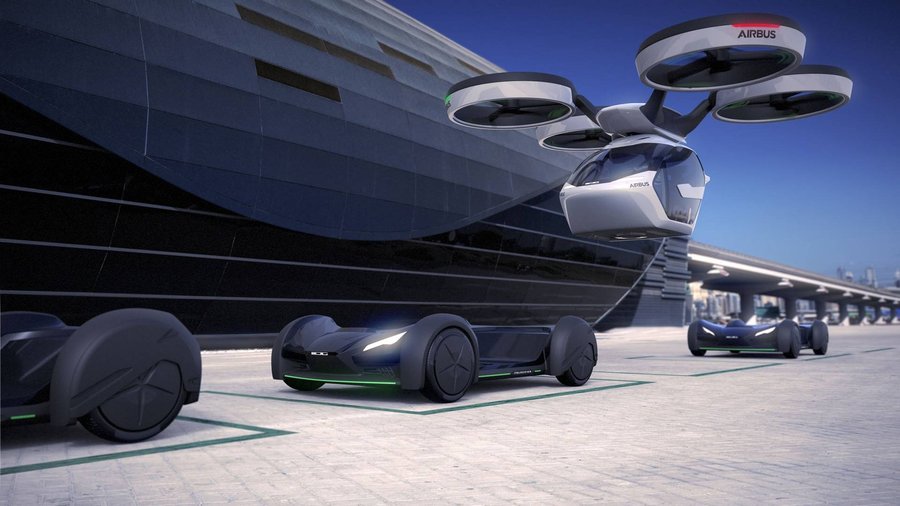Audi And Airbus To Work On Air-Taxi Project Testing In Germany

Since the early 20th century, visionaries, investors, and automakers have toyed with the idea of a flying car. While The Jetsons cemented the idea of what a 21st-century flying vehicle should look like, we're still waiting on anything even remotely similar to the cartoon's manifestation. However, that could change. Audi, along with Airbus and several government entities, has signed a letter of intent to start the Urban Air Mobility project in Ingolstadt, Germany. No, this isn't exactly what the Hanna-Barbera cartoon creators had in mind, but it's pretty close.
As of right now, it appears the agreement signals the intent and expectations of the parties involved, which include Germany's Federal Minister of Transport Andreas Scheuer, Minister of State for Digital Affairs Dorothee Bär, Airbus CTO Grazia Vittadini, and mayor of Ingolstadt Dr. Christian Lösel.
The press release calls out the Pop.Up Next concept displayed earlier this year at the Geneva Motor show. That concept worked by building an electric car that could detach from its motorized base and fly around the city via a quadcopter. The motorized base would need full, Level 5 autonomous driving technology as the system would in a ride-sharing capacity.
"Connected, electric and autonomous cars will make urban traffic more comfortable and cleaner and will save space – that means better quality of life for people in cities. This is where mobility in the third dimension can make a valuable contribution in the future," said Bram Schot, interim CEO and Member of the Board of Management for Sales and Marketing at Audi. "We would like to use our know-how to improve urban life, and aim to develop new mobility concepts for cities and people's various needs with the Urban Air Mobility project."
As exciting as this sounds, any real-world developments, or mass rollout, is likely years away. Developing this technology to be safe and reliable will take time, money, and significant R&D. It's one thing to have such a system in place. It's another to get people to trust using it.


Related News


